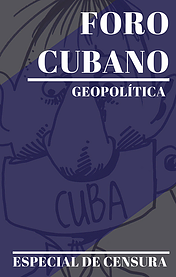De La Habana viene un barco cargado de…
Resumen
Se dice que a lo largo del siglo XX ocurrieron más eventos trascendentales para la historia de la humanidad que en los diecinueve siglos anteriores; no en vano Erick Hobsbawn puso tanto énfasis en analizar los procesos transformadores de lo que él llamaría “el corto siglo XX”[1]. Es innegable que fue un corto, pero a la vez un turbulento período. Pero si el planeta se sacudió varias veces en el siglo XX y en lo que va del XXI, la isla nación de Cuba ha sentido mucho más intensamente las reverberaciones de los cambios mundiales en los últimos cien años lo cual a su vez ha incidido en su relación consigo misma, así como frente a su contexto, tanto regional como global. Las siguientes líneas plantean un somero resumen de la geopolítica cubana desde el período anterior a la Revolución de 1959, hasta la renuncia de Fidel Castro como presidente de Cuba en 2008. El propósito es mostrar cómo a pesar de las ideologías imperantes en distintos momentos históricos y la incidencia que éstas tuvieron en la relación de Cuba con su entorno y con el mundo, es la particular ubicación geográfica de la isla el factor más importante dentro de la geopolítica de este país desde su independencia en 1898.


